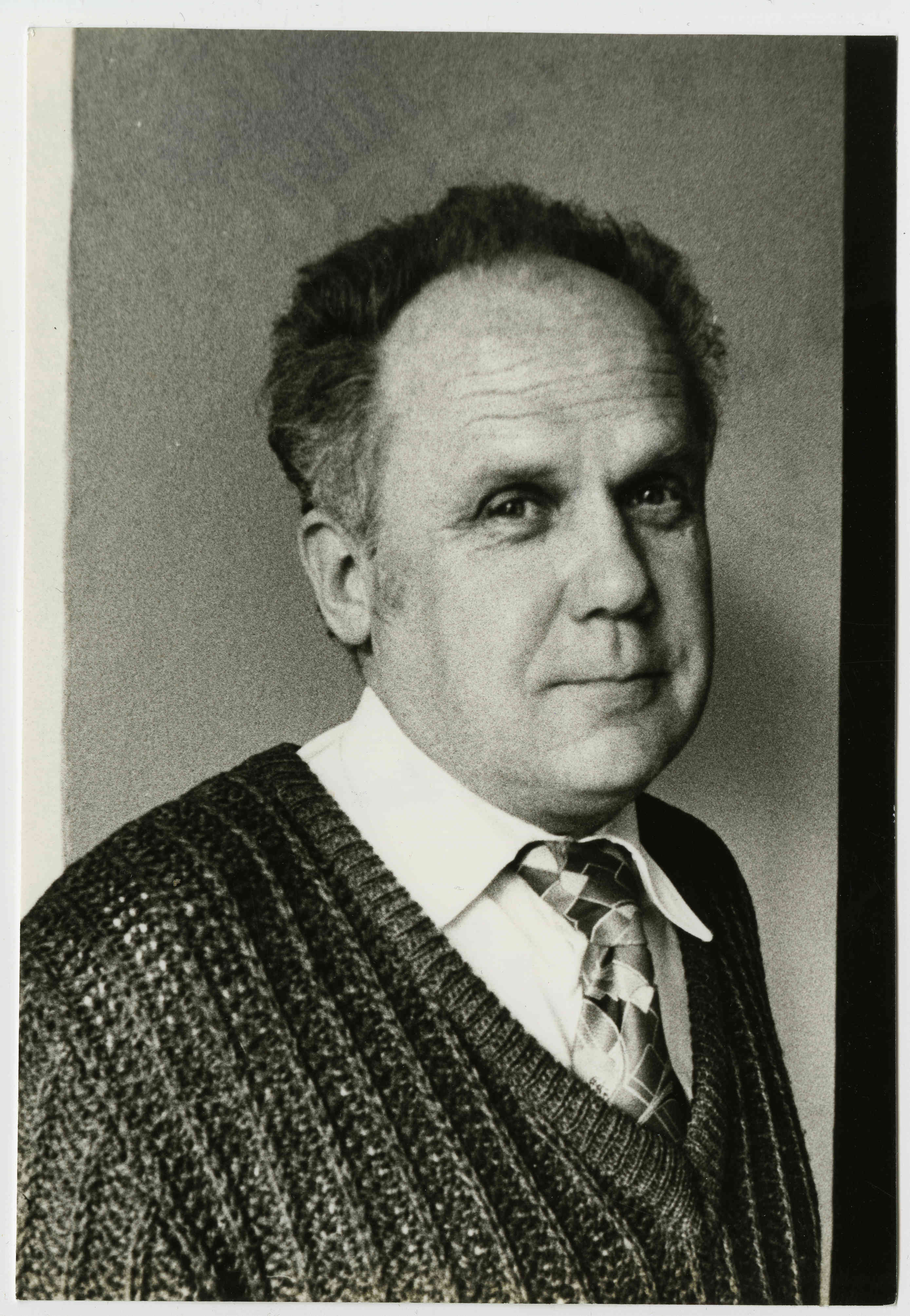
Vello Lattik
Vello Lattik (15. IX 1935 – 30. VIII 2007) was a prose writer and commentator.
Vello Lattik was born in Tartu into a working-class family. In 1961 he graduated from the faculty of law at the University of Tartu, and worked for a long time as a lawyer, economist and staff member at the Viiratsi Model State Farm. He travelled extensively in the Soviet Union, including the Far East and the island of Sakhalin. Among the positions he held were director of a registry office, engineer, boiler attendant, journalist, border guard – an experience of life which left its mark on his realistic novels and commentaries in the media.
Vello Lattik came to literature through novel and current affairs competitions. As a schoolboy Vello Lattik made contributions to the press, and continued this activity while living in Viljandi. Lattik’s novel about youth, Suudlus lumme (‘Kiss into the Snow’) appeared in 1963 as a serial in the journal Edasi, and in 1981 came out together with the novel Babyloni tüdrukud (‘Girls of Babylon’) as a book.
In 1984 Vello Lattik graduated from the Gorky Institute of Literature in Moscow. In addition to fiction he wrote commentaries, some of which found their way into the journal Looming.
Recurrent themes in Vello Lattik’s voluminous works are ethics, people’s adherence to their principles, opposition to adapting to circumstances – be they the restrictions imposed by Soviet stagnation or the market-driven society of early capitalism. Among the settings of the action in his works are a sovkhoz collective farm, a slaughterhouse, a boilerhouse, and a collective piggery.
In an interview in 2003, Vello Lattik said: “I don’t have any spiritual riches to reveal and I don’t know how to play with language. I repeat what I say: let a novel be an honest document of its time, and thereby a novelist is a chronicler.” Vello Lattik remained true to his dictum that literature should be true to life, and an author must understand the mind and language of an ordinary person on the basis of his own diverse personal experience. He did not assign importance to style or psychological depth.
For the novel Kuus head inimest (‘Six Good People’, 2007) Vello Lattik was awarded the Tammsaare prize for literature.
L. P. (Translated by C. M.)
Books in Estonian
Novels
Pastoraal mummulisest kleidist. Tallinn: Eesti Raamat, 1978. 195 lk.
Kuus head inimest. Tallinn: Eesti Raamat, 1979. 173 lk.
Suudlus lumme. Babyloni tüdrukud [romaanid]. Tallinn: Eesti Raamat, 1981. 211 lk.
Mihklipäeval, mihklikuul. Tallinn: Eesti Raamat, 1983. 136 lk.
Lend Kanaari saartele. Tartu, 1990. 108 lk.
Sirge säär sukas roosas. Viljandi: Sünnimaa, 1991. 63 lk.
Laul märast tumepunasest ja mustast täkust. Tallinn: Olion, 1995. 159 lk.
Miljardär Roosi rõõmud. Tallinn: Olion, 1997. 127 lk.
Muhumaa kuumad naised. Tallinn: V. Lattik, 1999. 205 lk.
Kohtumiseni unistustes!. Viljandi: V. Lattik, 2001. 256 lk.
Omakohus. Viljandi: V. Lattik, 2002. 215 lk.
Stories
Mättalt mättale. Tallinn: Eesti Raamat, 1974. 111 lk.
Orkester: triptühhon. Tallinn: Eesti Raamat, 1989. 316 lk.
Plays
Päise päeva ajal: kevad, 1988. Tallinn: Eesti Raamat, 1989. 45 lk.
Travel writing
Kus sa oled, Larissa? Sahhalini päevik. Tallinn: Eesti Raamat, 1988. 239 lk.
Commentaries
Olla mees meeste seas. Tallinn: Eesti Raamat, 1967. 54 lk.
Ühe lavastaja suvi [olukirjeldus Viljandi J. Gagarini nimelise Näidissovhoostehnikumi töötajatest]. Tallinn: Eesti Raamat, 1977. 103 lk.
Üks pohlavars, üks maasikaleht ja keskele kadakaoksake [olukirjeldus]. Tallinn: Eesti Raamat, 1981. 67 lk.
Valitud publitsistikat. Tallinn: Eesti Raamat, 1985. 192 lk.
Siis kui öö on ja uinun’d on Pariis [olukirjeldus], Tallinn: Eesti Raamat, 1988. 45 lk.
Kus on, kus on vangi kodu? Helsinki, Ministry of Justice, 1999. 79 lk.
Kass ja hiired jagavad urgu. Viljandi: V. Lattik, 2000. 133 lk.
Siim, viska padruneid!: ballaad. Viljandi: V. Lattik, 2004. 80 lk.
Messias Järvamaalt: ballaad. Viljandi, V. Lattik, 2006. 80 lk.
Kasakas ja neitsi. Viiratsi: V. Lattik, 2007. 95 lk.



